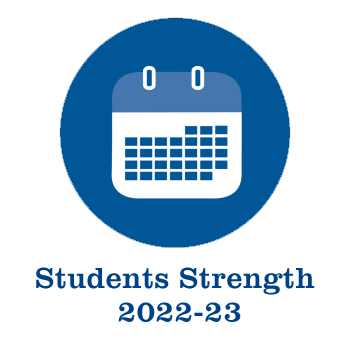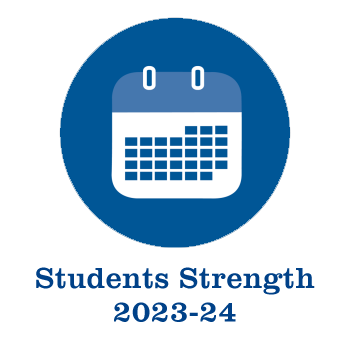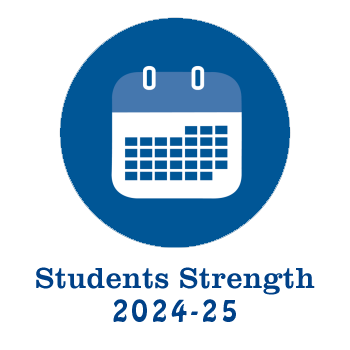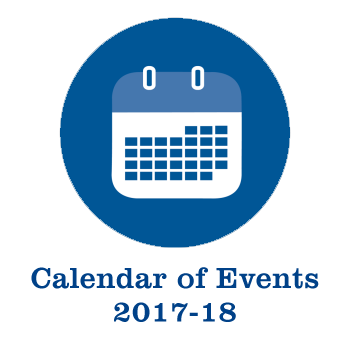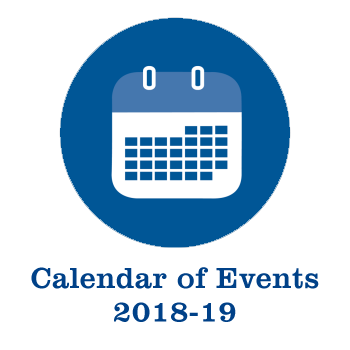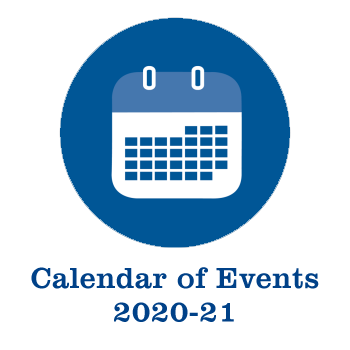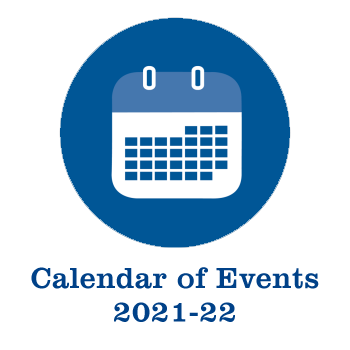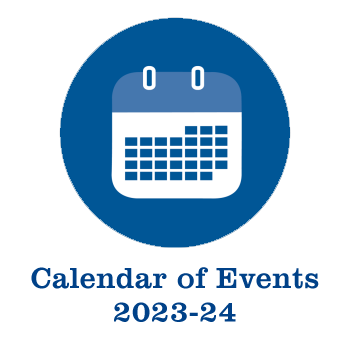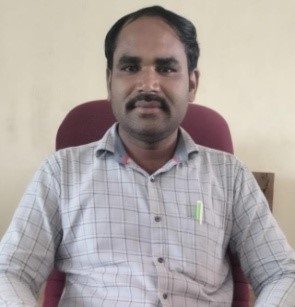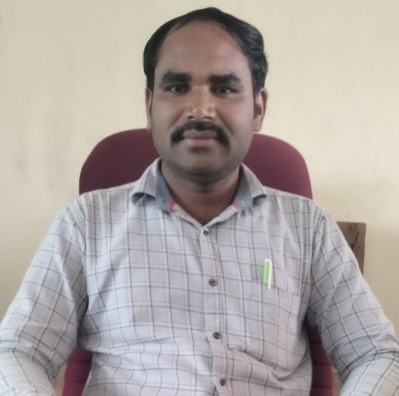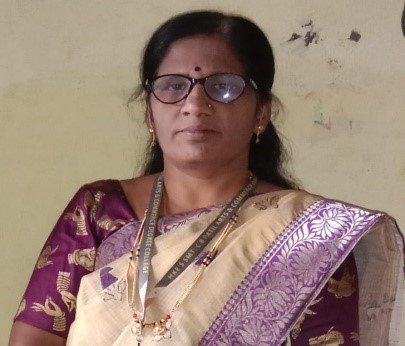B.A - Economics
Introduction
Academic Programmes
Students strengths and Results
Calender of events
UG Syllabus
Lesson Plan and Question Papers
Lecture Notes
Head of the Department
Faculty Details of the Dept. of Economics
Research Detatils
Department Activities
Board of Studies (BOS)
Delivered Special Lecture
Contact Department
News and Events
Photo Gallary
Introduction
HISTORY OF THE DEPARTMENT
The Department came into existence along with the establishment of the HKE Society educational institution in the year 1969. The college, at the beginning was affiliated to Karnataka University, Dharwad, and later in the year 1982-83 affiliated to Gulbarga University, Gulbarga. Our department had offered B.A. and B.Com, at Under Graduate level with non-semester system at the beginning and later on, as per the Gulbarga University, introduced the semester system from the academic year 2006-07. The department is earnestly trying to promote qualitative higher education through which it can produce the students as beneficial to the society, and to promote them to withstand for the betterment of healthy society. It is also aware of the great bottle neck competition of the modernized computer world. Presently, the department is heading by the full time and guest faculty who are assessing the progress of students by conducting the internal tests, seminars, group discussion and giving assignment and student’s project work. And the department of library is having more than 50 books for the students and a good number of reference books for the staff.
VISION
“To realize the need in imparting higher education in this backward region, encouraging the poor, supporting depressed and up righting the neglected students of rural background with harmonious blending of actions, emotions and intellect”.
MISSION
“The mission of the institution is to create social awareness to places the students in the mainstream of the society ennobling discipline, self-respect, self-reliance and motivating leadership qualities in students”
Goals of the Department
As the mankind is passing through an age of fleeting values with the accent on materialism, life has become an artificial embellishment. But when this mask is discarded by a jostle of this rough world, darkness and mystery seem to pervade everywhere. We find today a weary world, shattered, battered torn and shrunken with conflict and strife, desperately looking for succour. The cultural erosion that is menace to the present society is the by-product of the spiritual aridity. This helpless condition must be changed. Societies must undergo transformation in a direction that elements of societies understand practice higher values of life.
History confirms that education plays a vital role in the transformation of the societies. The need the hour is to explore that education which would about the right transformation that shall inculcate human values in to the minds of the youngest architects of the mankind. Education sans spiritual content is the cause for the evils of the society. So education must aim at yielding honest and truthful individuals. Lack of spiritual knowledge makes the students grope in the darkness and alienated from his self, his society and environment. It is only within the four walls of classrooms that we address the grave problems that stare humanity in his face. The system of education, According to Thomas Aquinas, a famous British Economist and social scientist, and Father of 13th century Economic Thought, must be on the basis of Covenants of Imperceptible Omnipotence, in order to develop the spiritual values in the societies that give the eternal satisfaction to human beings by curing the corrupted part of human ‘Reason’ and allowing it to operate on its substances, rather than the discoveries of human Reason.
Keeping in view the need of the hour and the mission of the College, the Department has following Objectives
- To motivate the students to be enlightened themselves about the ultimate truth by strictly checking the operation of Reason by the Hypocritical and corrupted sense impression.
- To motivate the students to become responsible representative in the formulation of National economic policies on the basis of ways of uncaused –Omnipotent power, rather than, the Hedonistic principle of utilitarianism.
- To make the students to avoid inner motivations of man-made philosophy causing the superstitious activities of extravagancy.
- To motivate the students be research oriented in studying both the under and post graduate studies.
- To make the students to fasten the movement of intuition that lingers innately , in order to make the Reason to operate on the basis of the path of unseen Omnipotence, rather than, the micro-level impression of Socialism, Scepticism, deism and Hypocrisy etc.
- The department, basically, aims at conducting the Community Services on the topics of highly SpiritualValues as maintained by the UGC.
OBJECTIVES OF THE DEPARTMENT
The main objective is to develop in students the skills of speaking and writing in an integrated manner so that they can use language effectively
and naturally in different situations.
To develop entrepreneurial and social skills.
To provide of awareness economic, entrepreneurial and social conditions this will facilitate understanding of economic issues leading to policy
making.
To ensure the acquisition of factual knowledge and strong foundation courses.
PROGRAMMES OFFERED
B.A and B. Com Programmes offered at under graduate level by the
university. Its academic programmes are constantly updated and are intended to
provide the tools necessary to understand the workings of real world economies
in terms of both theory and policy.
COURSE OFFERED
Non CBCS and CBCS
BA: History, Economics, Political Science.
History, Economics, Sociology.
History, Economics, opt. Kannada.
History, Economics, Computer Application.
B. Com: Business Economics, Small Business Management, Business
Environment, Banking Theory and Practice.
NEP: History Economics. Economics Political Science plus Open
Electives.
DEPARTMENT MEETINGS
1. At the beginning of every Academic Year, the department as per the circular
of the college calls the faculty members’ meeting, the purpose of the meeting is
to chalk out the Plan of Action for the effective implementation of the
curriculum.
2. The department work-load will distribute among the faculty members.
Session plan has to be prepared by the faculty members and according to that
faculty has to work on.
3. As per the University norms and condition in each semester the department of
Economics conducting two Internal Tests which is carrying for 20 marks.
Academic Programmes
Academic Programmes
- Name of the Department: Economics
- Year of Establishment: 1983
- Name of Programmes Offered : BAand Com
- Programme Name:
| Programmes | Year of Commencement | Sanctioned intake |
| Undergraduate (UG) | 1983 | |
| BA IstYear | 2022-23 | 19 |
| BA IInd Year | 2022-23 | 19 |
| BA III Year | 2022-23 | 21 |
| B.com-Ist Year | 2022-23 | 29 |
| B.Com-IInd Year | 2022-23 | 22 |
| B.Com-IIIrd Year | 2022-23 | 33 |
The Department offers B.A and B.Com Programmes. Its academic programmes are constantly updated and are intended to provide the tools necessary to understand the workings of real world economy in terms of both theory and policy.
Teaching, Learning and Evaluation:
- The department generally adopts and follows the Curriculum designed by the Gulbarga University, Gulbarga.
The Curriculum is as follows
NON CBCS (2016-2018-19), CBCS (2019-20) AND NEP Syllabus (2021 Onwards).
- At the beginning of every Academic Year, the department as per the circular of the college calls the faculty members’ meeting, and chalk out the Session Plan for the effective implementation of the curriculum.
- According to the department work-load will distribute among the faculty Session plan by the faculty member has to prepare and implement effectively.
- As per the University norms, in each semester the Department of Economics conducting two Class Tests which is carrying for 20 marks.
- Students have to present 2 seminars and participation in group discussions is must in each semester. In addition to that Students are entrusted with assignments and project works.
- The faculty members evaluate test papers, assignments, and project works to know about the quality of writing skill.
- Some classes on important topics of the syllabus are delivered with the help of PPT. whereas; the major portion of teaching is with the help of Chalk and Talk method.
- Inviting resource person to deliver lecture on different Study tours are conducted.
- Feedback from the students in every semester is collected, so as to, assess the performance of the faculty members.
- Academic performance of the faculty is assessed by the Principal every year through the Faculty-Appraisal Report.
- Conducting Remedial classes for slow
- The intends to adopt the students mentoring.
- In addition to the curricular and co-curricular activities, the department encourage the students to participate in extracurricular activities like, NSS, Bharat Scouts and Guide, Sports and cultural activities.
- The department, especially, aims at conducting Community Services on the topics of highly Spiritual Values.
Program Educational Objectives (PEO’s):
- Read, understand and interpret economic aspects through – verbal, demonstrative, mathematical and graphical methods;
- The development of critical thinking skills and the accumulation of factual knowledge;
- Application of critical thinking to factual knowledge and the development of effective decision making skills;
- Development of an understanding of economic theories and their application to the economic sub-fields;
- Apply theoretical or demonstrative methods through econometric modeling and software skills;
- Offer courses to the choice of the students with skill-based courses having interdisciplinary approach;
- Offer a diverse selection of courses to foster a broad knowledge base in the field;
- Provide strong foundation courses of economics for non-majors student;
- Nurture global human capital, future leaders and problem-solvers to become employable and sensitized world citizens;
- Able to enter into new problem areas that require an analytic and innovative
Program Outcomes (PO’s):
The Department of Economics has established the following learning outcomes for its undergraduate program.
- Economics Knowledge:
- Students will learn how markets organize core economic activities, such as production, distribution, and consumption, and the growth of productive resources.
- Students will evaluate about the determinants of macroeconomic conditions (national output, employment, and inflation), causes of business cycles, and interactions of monetary and fiscal policy.
- Students will able to apply economic theories and methodologies in analyzing economic issues in various sub-fields of applied microeconomics and international
- Analytical Skills in Economics:
- Analytical and economic reasoning skills: deduce reasonable predictions about possible economic outcomes based upon economic conditions and economic theories.
- Quantitative analytical skills: collect and analyze data to support economic decision making using statistical and econometric techniques.
- Critical thinking skills: evaluate and critique alternative economic
- Self-development skills: learn new theories about economic activities; create explanations for new economic phenomena and device innovative approaches to solve various economic problems.
Jobs Prospects:
Teaching, Data Analyst, Software Analyst, Statistical officer ,Market Research Analyst, Business Analyst, Financial Analyst, Finance Manager, Financial Consultants, Financial Planners, Forecasting Analyst, HR Manager, HR Executive, International Financial Consultants, Industrial Analysts, Investment Analysts, Investment Companies, Agricultural Experts, Agri- Business Consultant, Agricultural Economists, Agricultural Commodities Trader, Rural Credit Analyst, Rural Marketing, Rural Managers , Supply Chains, Consultancy, Analytics, Banking, Insurance, Fund Management, Indian Economic Servic, etc.
UG Syllabus
SEP Syllabus
Lecture Notes
Head of the Department
Dr.Ramakrishna B, Assistant Professor
M A M.Phil Ph.D
Faculty Details of the Dept. of Kannada
Department Activities
Department meeting and Department time table
Special Lecture Organized
ICT Class
ENVIRONMENTAL ACTIVITIES
Department Meeting
BRIDGE COURSE
Work Done Report
Internal Test
SEMINAR BY STUDENTS
PROGRAMME OUTCOMES
FEED BACK
INDIVIDUAL TIME TABLE
Others
Board of Studies (BOS)
Delivered Special Lecture
Contact Department
Dr.Ramakrishna B
M A M.Phil Ph.D
Assistant Professor
News and Events
Photo Gallary

We’re Waiting To Help You
Get in touch with us today and let’s start transforming your question.


